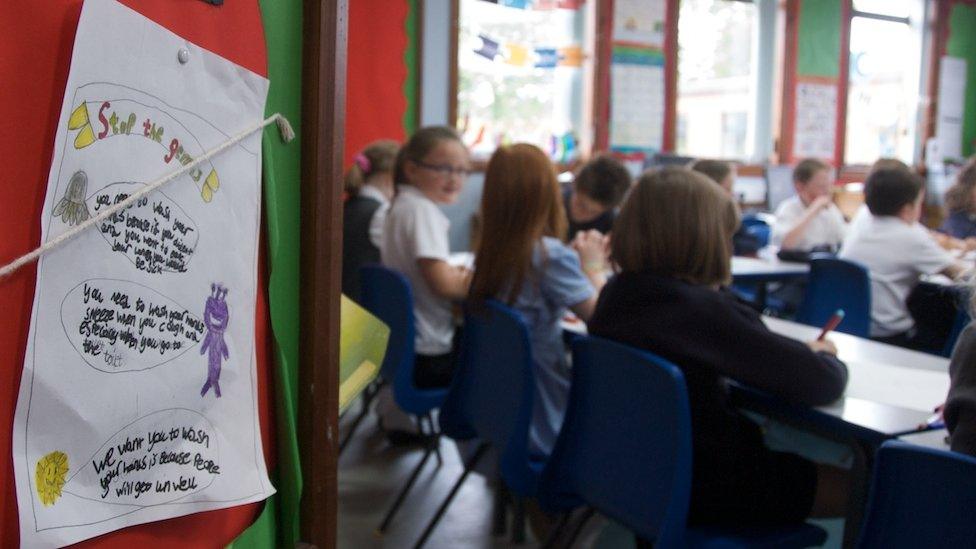Coronavirus: School exam timetable could be put back next year
- Published
Education Secretary John Swinney said the new academic year, starting in August, is unlikely to get back to normal
Next year's exams may take place later than normal, according to Education Secretary John Swinney.
He told BBC Scotland's Politics Scotland it was possible the timetable could be put back to allow courses to be completed.
Normally the diet begins towards the end of April. This year, exams were cancelled for the first time ever.
Mr Swinney accepted next year's exams could also have to be cancelled but was hopeful that would not happen.
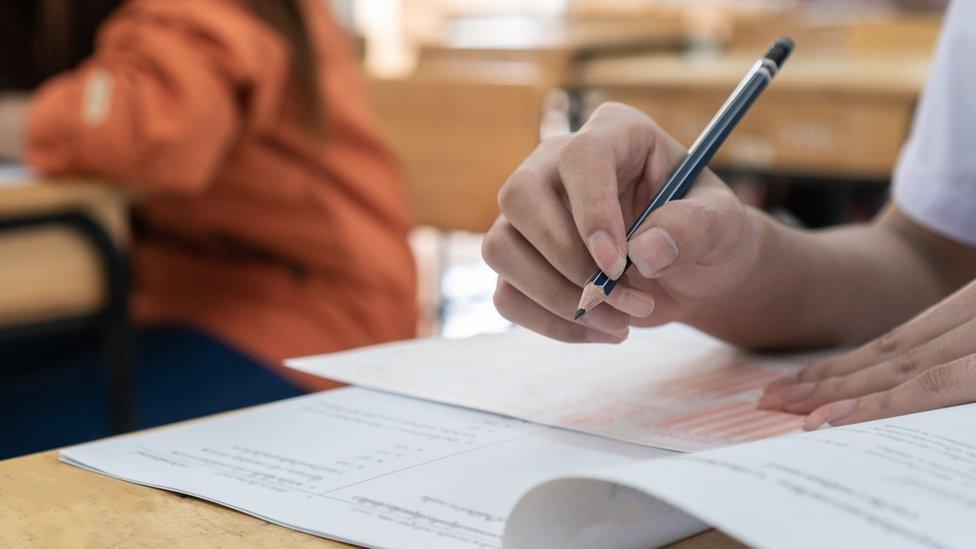
Exams could be held later in the year in Scotland in 2021
"The exam diet is being prepared for the spring of 2021 and our working assumption is that it will take place," he said.
"We have also said to schools that they should be gathering evidence of the achievements of young people on an ongoing basis in case we are not in a position to be able to run the exam diet in the spring of next year.
"It normally starts in late April, it might be possible that we could start it later in the year."


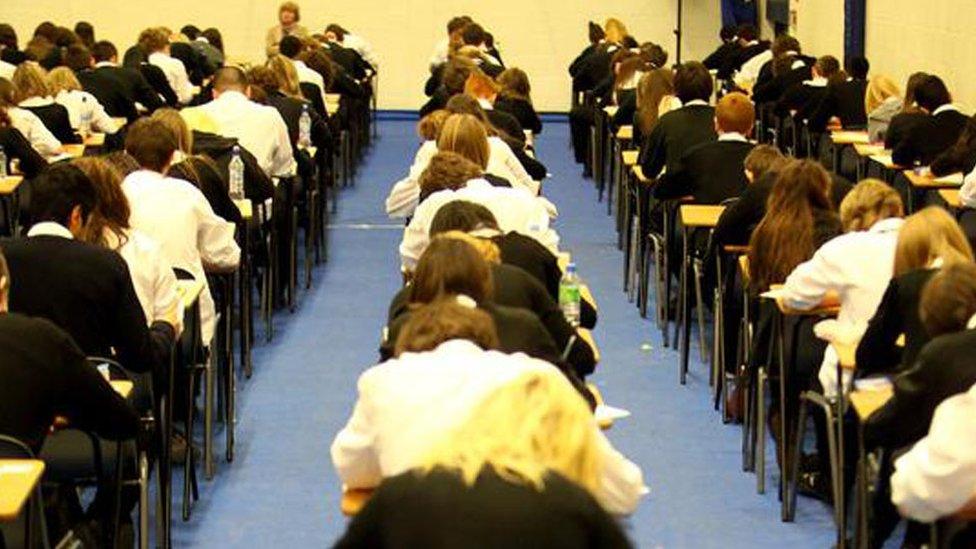
The longer these emergency arrangements continue, the harder it will be to complete National 5 and Higher courses.
Mr Swinney said he hoped the blended model would not go on for a moment longer than necessary.
The fact students hoping to go to college or university next autumn would need their results by a certain date means there are practical limitations on how long any postponement of the exams could be.
The SSTA union has already called for next year's exam diet to be cancelled.
The largest union, the EIS, had previously argued that some students should not sit exams next year - such as S4 students who intended to continue with a subject in S5.

Mr Swinney also told the programme he was confident schools could go back on 11 August and hoped the "blended" model of home and face-to-face learning would not go on for "a minute longer" than was necessary.
However, he said he accepted it was "unlikely" that schools would return to normal before the end of the academic year due to social distancing.
"The more we can try to expand the capacity and involvement of young people in their education in face-to-face schooling we will be taking those opportunities when it is safe to do so," he said.
Mr Swinney added that he understood parental anxiety about sending children back to school in August which he said would be a legal requirement.
"We will have considered discussions with parents about the issues about which they are concerned," he said.

RISK AT WORK: How exposed is your job?
SCHOOLS: When will children be returning?
EXERCISE: What are the guidelines on getting out?
THE R NUMBER: What it means and why it matters
RECOVERY: How long does it take to get better?

- Published17 June 2020
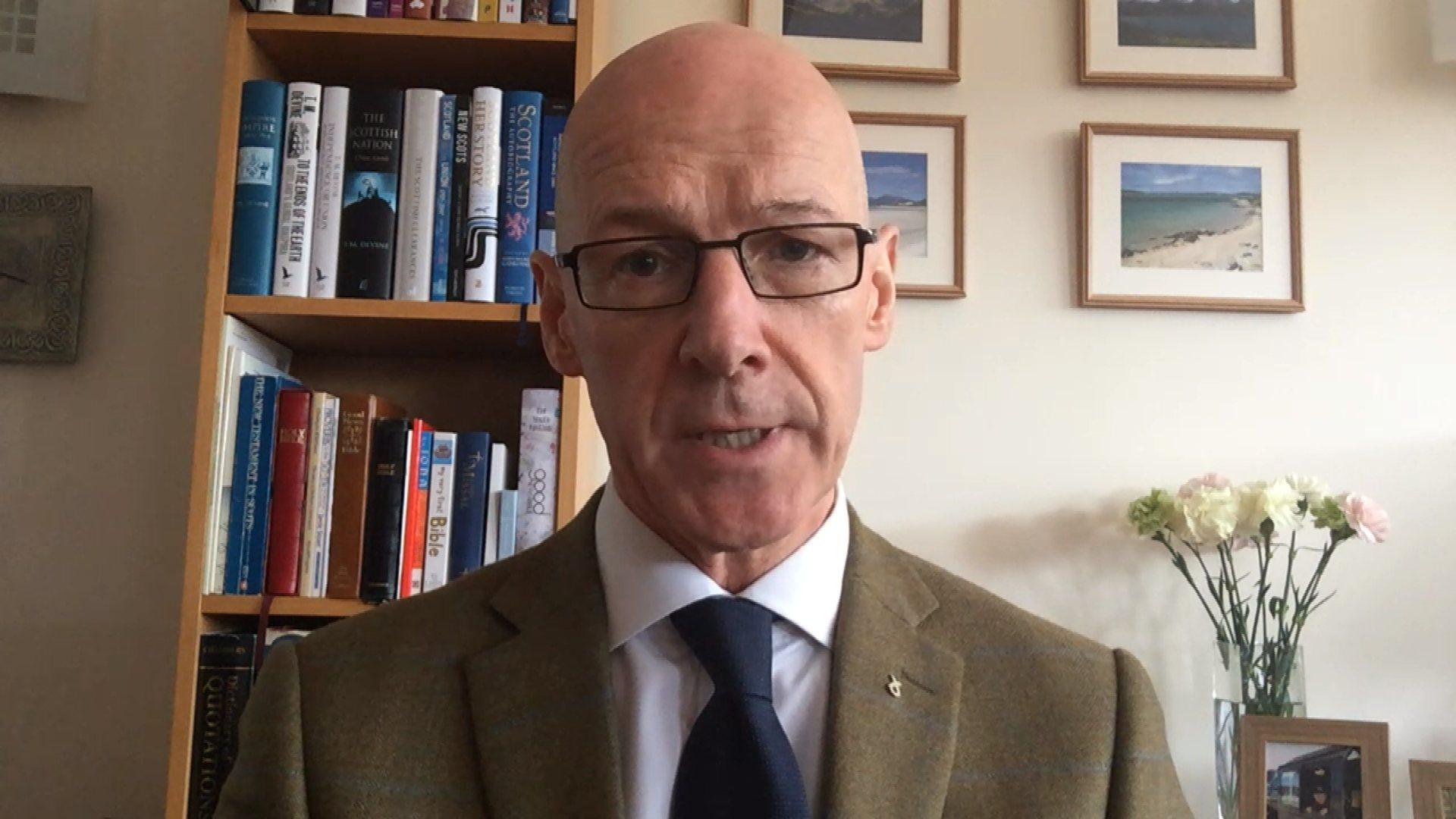
- Published16 March 2020
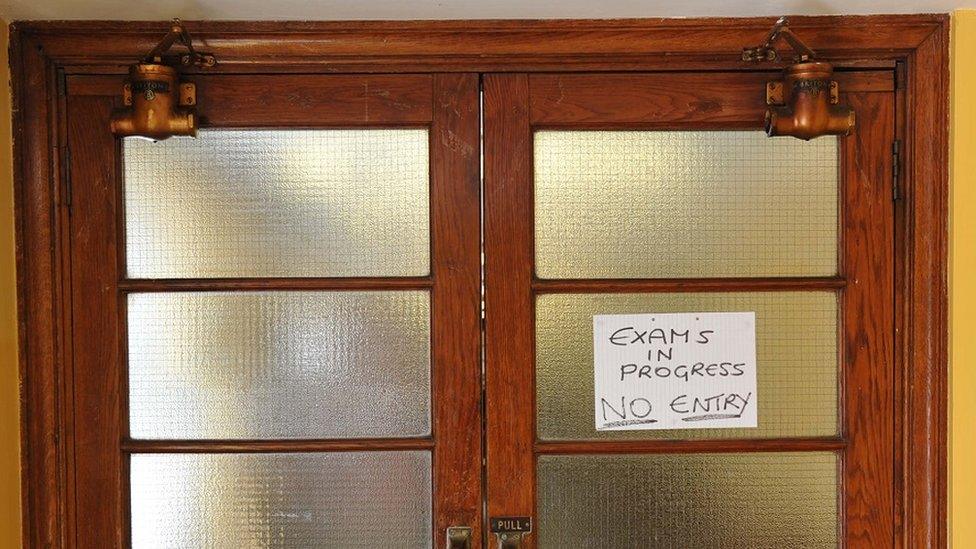
- Published21 May 2020
